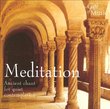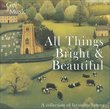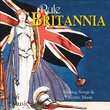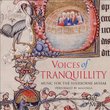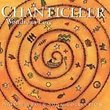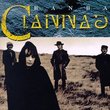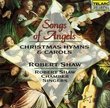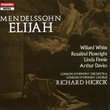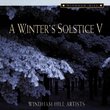| All Artists: The Elizabethan Consort;The Henrician Consort Title: Music for a Great Castle Members Wishing: 1 Total Copies: 0 Label: The Gift of Music Original Release Date: 1/1/2005 Re-Release Date: 2/4/2005 Genre: Classical Style: Symphonies Number of Discs: 1 SwapaCD Credits: 1 UPC: 658592111125 |
Search - The Elizabethan Consort;The Henrician Consort :: Music for a Great Castle
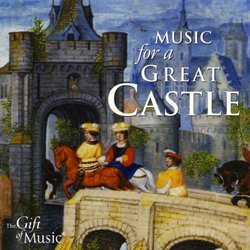 | The Elizabethan Consort;The Henrician Consort Music for a Great Castle Genre: Classical
Music for a Great Castle Raise the drawbridge! Music for dancing in the keep, for meditation in the chapel and for feasting in the great hall. A collection of medieval and renaissance music which presents a musical tour of... more » |
Larger Image |
CD Details
Synopsis
Product Description
Music for a Great Castle Raise the drawbridge! Music for dancing in the keep, for meditation in the chapel and for feasting in the great hall. A collection of medieval and renaissance music which presents a musical tour of a great castle. Trumpets, drums, flutes, harps, recorders and lutes provide a rich and colourful programme created for pure pleasure and enjoyment. Great Britain has many castles, dating from medieval times almost to the present day. Many are no more than ruins, even as little as an outline of a few walls, but others have survived the ravages of time in quite considerable splendour. Examples of the latter might be Warwick Castle, or Bamburgh Castle in Northumberland. Conceived initially as fortresses, castles started to acquire a few creature comforts in the late medieval period. The music on this album is mainly from this period and from the renaissance, and gives some insight into the sounds that could have been heard in the more habitable parts of a castle from around 1500 onwards. Dances could have been outdoors or in, while more intimate chamber music, such as the elegant guitar suite by Campion would have sounded at the their best in a small room, in contrast to the louder music which would have been well suited as an accompaniment to feasting and dancing in a great hall. Many of the pieces are taken from Thoinot Arbeau's Orchesographie. This rather lovely volume was published in France in 1589. It not only summarised many musical styles, particularly of dance music, up to that point in history, but also quickly became a standard dance book that musicians throughout Europe would turn to for tunes and advice on playing the music and performing the dances. Along with advice on dancing it also includes many elegant illustrations such as the one below. Every castle had a chapel, where knights could pray for success in battle. 'Gloria in exclesis Deo' - Glory to God in the highest - is a plainchant song heard during High Mass. 'Sanctus' is also part of the liturgy of the mass, and the version we have here was composed by a King, Henry V, who, unlike many regal figures of the period, was a notably cultured man. Holborne, Dowland and Byrd were all known to Elizabeth I, whose court and castles frequently resounded with great music. Dancing was a precise art in medieval and renaissance times, with conventions as strict as that of any other discipline. Here is a typical illustration from Ochesographie, the reverence or bow, which was an essential, and very polite part of every dance.
Similar CDs
| Pro Cantione Antiqua Meditation Genre: Classical Label: The Gift of Music | |
| Daylight Dies Dismantling Devotion Genres: Rock, Metal Label: Candlelight | |
Similarly Requested CDs
| Chanticleer Wonderous Love Genre: Classical Label: Teldec | |
| Clannad Banba Genres: Folk, International Music, New Age, Pop Label: Atlantic / Wea | |
| Norah Jones Not Too Late Genres: Folk, Pop, Broadway & Vocalists Label: Blue Note | |
| Kiri Te Kanawa Blue Skies Genres: Special Interest, Pop, Classical Label: Polygram Records | |

 Track Listings (26) - Disc #1
Track Listings (26) - Disc #1